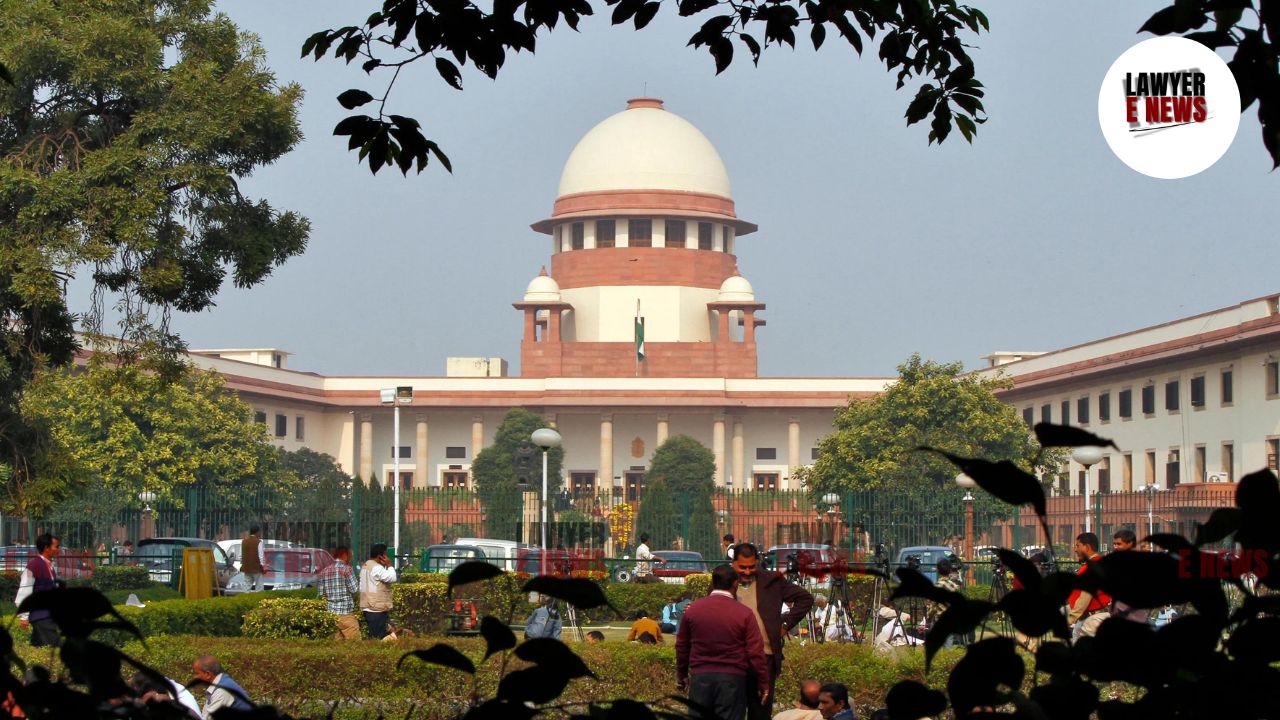-
by Admin
15 February 2026 5:35 AM



Supreme Court of India delivered a significant judgment regarding the eligibility criteria for promotions within the Kerala Medical Education Service. A Bench comprising Justices Dipankar Datta and Prashant Kumar Mishra held that post-qualification experience was not a mandatory requirement for promotion to the Teaching Cadre, as stipulated in the Government Order (G.O.) dated April 7, 2008. The Court reversed the Kerala High Court's orders that had incorrectly inferred a post-qualification stipulation.
The ruling underscores the need for strict adherence to the text and intent of recruitment rules, emphasizing that executive orders supersede general service rules where applicable. The Supreme Court restored the promotions of Dr. Sharmad and Dr. Sheela T.A., providing clarity on the interpretation of service law in Kerala.
The Supreme Court held that the G.O., which governs recruitment and promotions in the Medical Education Service, does not stipulate post-qualification teaching experience for promotions in the Teaching Cadre (Branch II). Unlike the Administrative Cadre (Branch I), where the G.O. explicitly mentions "10 years of teaching experience after acquiring a postgraduate degree," such language is absent for Teaching Cadre posts like Associate Professors and Professors.
“A plain and literal reading does not lead to the conclusion that 5 years’ experience of physical teaching as an Assistant Professor after acquiring M.Ch. degree is one of the requisite qualifications.” (Para 14)
The Court concluded that the omission of the phrase "after acquiring postgraduate degree" in the Teaching Cadre section of the G.O. was deliberate and aligned with the executive's intent.
"Expressio Unius Est Exclusio Alterius" Maxim:
The Court applied the principle of "expressio unius est exclusio alterius" (the expression of one thing excludes the other) to highlight the deliberate exclusion of a post-qualification requirement for Teaching Cadre posts. This omission, coupled with its inclusion in the Administrative Cadre requirements, demonstrated a clear legislative intent to treat the two cadres differently.
“The exclusion of the words ‘after acquiring postgraduate degree’ is deliberate and conscious, and the contentions advanced to the contrary do not commend acceptance.” (Para 22)
The Court rejected the High Court's reliance on Rule 10(ab) of KS and SSR, which provides that any prescribed experience in recruitment rules must be post-qualification unless otherwise specified. The G.O. dated April 7, 2008, issued under Article 309 of the Constitution, explicitly superseded earlier rules, including the KS and SSR, for recruitment in the Medical Education Service.
“Rule 10(ab) consciously uses the expression ‘unless otherwise specified,’ and the G.O. dated 07th April, 2008, constitutes the specification excluded from its purview.” (Para 20)
The Court noted that teaching positions require direct classroom engagement, making physical teaching experience crucial. However, the absence of a post-qualification stipulation in the G.O. indicated a conscious policy decision to allow experience to accrue irrespective of when the postgraduate degree was acquired.
The Court distinguished earlier decisions, including Shesharao Jangluji Bagde v. Bhaiyya S/o Govindrao Karale (1991) and Arun Kumar Agarwal (Dr.) v. State of Bihar (1991), cited by the respondents. These cases involved recruitment rules that explicitly mandated post-qualification experience, unlike the G.O. at issue.
“Although normally, experience gained after acquiring a particular qualification could justifiably be insisted upon by the employer, there could be exceptions, and the present case is one such exception.” (Para 26)
The Supreme Court set aside the Kerala High Court’s judgments, restoring the Kerala Administrative Tribunal’s dismissal of the original applications filed by the rival claimants. The promotions of Dr. Sharmad and Dr. Sheela T.A. were upheld as valid.
Date of Decision: January 10, 2025
